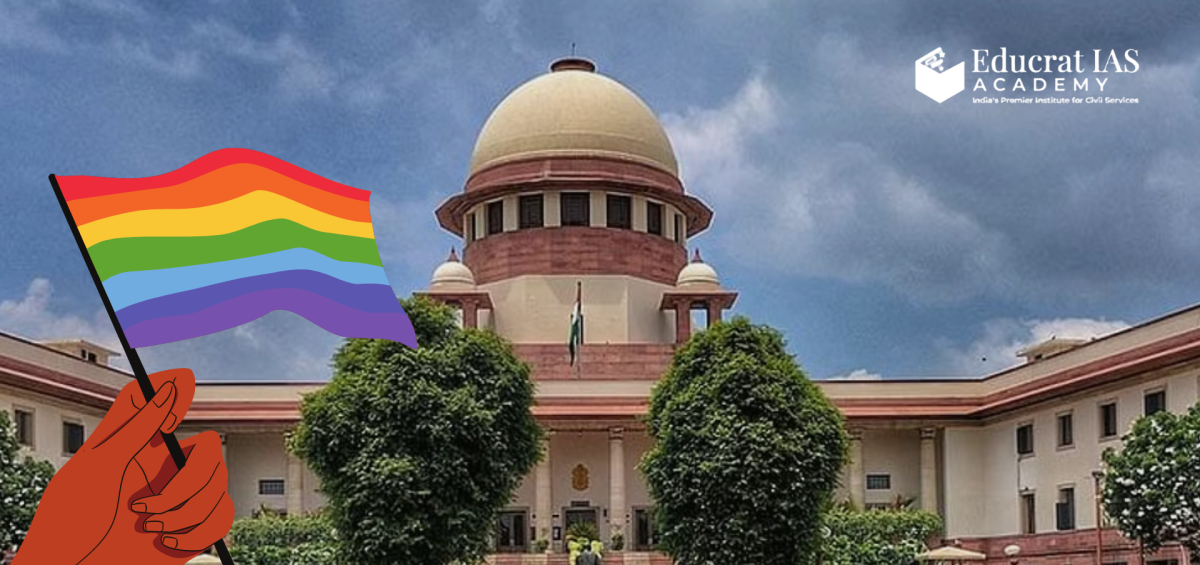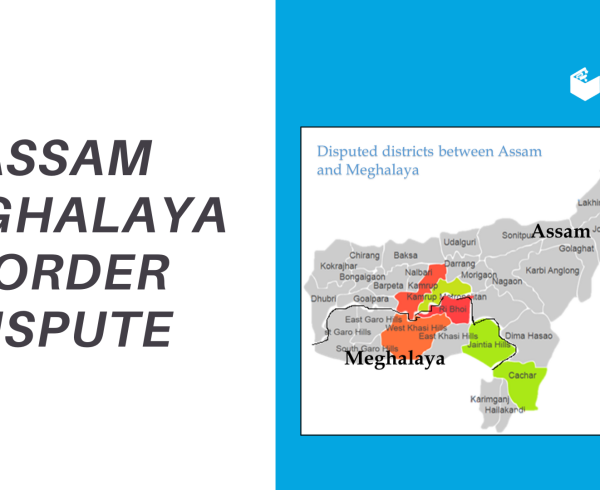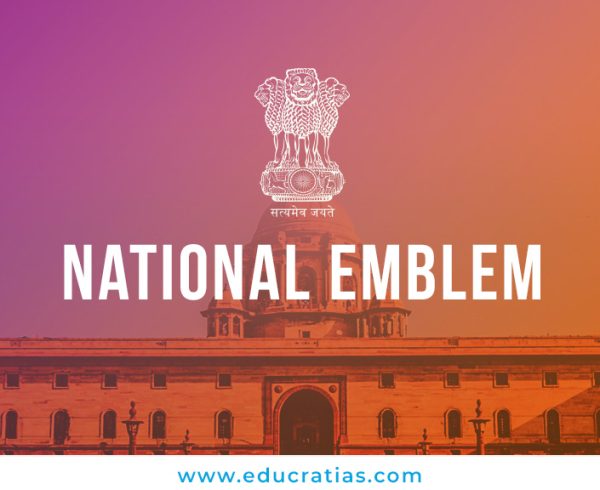The Supreme Court recently issued a notice to the Centre on a plea to grant legal recognition to same-sex marriages and alliances between members of LGBTIQ+ community under the Special Marriage Act. The petition raised the absence of a legal framework which allowed members of the LGBTQ+ community to marry any person of their choice.
- As of 2022, marriage between same-sex couples is legally performed and recognized in more than 30 countries.
- The most recent country legalizing it is Mexico.
Relevant Cases:
NALSA v. Union of India: Here, Supreme Court categorically held that Indian Constitution protects non-binary individuals and that the protections envisaged under Articles 14, 15, 16, 19 and 21 cannot be restricted to the biological sex of male or female.
Marriage as a Fundamental Right (Shafin Jahan v. Asokan K.M. and others 2018): While referring to Article 16 of Universal Declaration of Human Rights and the Puttaswamy case, the SC held that the right to marry a person of one’s choice is integral to Article 21 of the Constitution.
Navtej Singh Johar judgment, 2018: Decriminalised homosexuality and held that the Section 377 of the Indian Penal Code was unconstitutional.
Puttaswamy judgment, 2017: Affirmed the Right to Privacy as a fundamental right
The Special Marriage Act of 1954
All marriages in India can be registered under the respective personal law Hindu Marriage Act, 1955, Muslim Marriage Act, 1954, or under the Special Marriage Act, 1954. The Special Marriage Act, 1954 is an Act of the Parliament of India with provision for civil marriage for people of India and all Indian nationals in foreign countries, irrespective of religion or faith followed by either party. The couples have to serve a notice with the relevant documents to the Marriage Officer 30 days before the intended date of the marriage. This Act is applicable to the entire territory of India and extends to intending spouses who are both Indian nationals living abroad.
Various petitions:
- First petition – The petition argued that the SMA was “ultra vires” (beyond the powers) the Constitution as it discriminates between same-sex couples and opposite-sex couples. • It stated that the Act denied same-sex couples both legal rights as well as the social recognition and status that came from marriage.
- Second petition – It argued that the recognition of same-sex marriage was only a continuation of the Navtej Singh Johar judgment of 2018 and the Puttaswamy judgment of 2017. The petition only sought to make the 1954 Act gender-neutral.
Arguments in favour of legalising Same-Sex Marriage:
- The Special Marriage Act of 1954: It provides a civil form of marriage for couples who cannot marry under their personal law.
- Fundamental Right: Right to marry a person of one’s choice is a fundamental right.LGBTQ+ community have the same human, fundamental and constitutional rights as other citizens.
- Right to equality: The petitioners have argued that barring them from marriage violates their right to equality.
- Global practice: Same-sex marriages are legal in at least 30 countries, including the United States, Australia, Canada, and France.
Arguments against legalising Same-Sex Marriage:
- Against Biological relation: Marriage in India can be recognised only if it is between a biological man and a biological woman
- Judicial interference: Interference by a court in the marital statute based on personal laws will create havoc in society and will run against the intent of Parliament in framing the laws.
- Fundamental rights are not absolute: It cannot override other constitutional principles.
- Section 4 of the Special Marriage Act: It although permits any two persons to solemnize a marriage, the subsequent conditions in sub Section (c) therein restrict its application only to males and females
- Counter to global challenges: Recently, Singapore scrapped criminal penalties for gay sex, but stopped short of allowing marriage.
The LGTBQ community needs an anti-discrimination law that empowers them to build productive lives and relationships irrespective of gender identity or sexual orientation and place the onus to change on state and society and not the individual.





